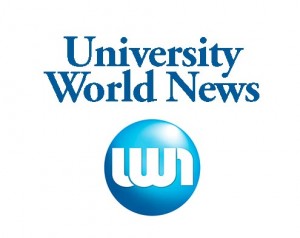Castells in Africa GLOBAL The university – Decisive Battlefield and Source of Hope


The analyses and policies on higher education and development compiled in Castells in Africa: Universities and Development were elaborated and discussed in South Africa with the broader African context in mind. I add here a few considerations that take into account the social transformations that have taken place in the last decade in the world economy and in the global institutional environment.
Specifically, three major processes are changing the coordinates of the global political economy, and are thus the challenges and strategies to which higher education must respond.
First, global financial markets are increasingly the core of national and international economies, and they are characterised by systemic volatility, as manifested in the 2008 to 2012 financial crisis and its aftershocks.
Second, the social and political reactions to the inequality of the policies drafted in response to the financial crisis have deepened the crisis of political legitimacy everywhere, and brought the state to the forefront of social dynamics and policy-making once again.
Third, the information technology revolution has accelerated, creating entire new economic sectors, particularly in biotechnology, biomedicine, energy, nanotechnology, internet-based social media, artificial intelligence, automation and informational education. In all these areas, the role of knowledge production and management is central, and so is the strategic positioning of higher education.
Interacting processes
However, the most important feature of the new institutional landscape is that these three processes interact. Depending on the forms and outcomes of this interaction, a virtuous circle of development may be created, or new contradictions will emerge, leading to an impasse in policy-making. Allow me to elaborate.
First, the financial crisis, as I have shown elsewhere (Castells 2012; Castells 2017a), vindicated the role of the state as the ultimate guarantor of global capitalism. Without the decisive intervention of governments between 2008 and 2010 in the United States and Western Europe, there could have been a financial meltdown. Indeed, in terms of value destroyed in the financial markets, the impact of the crisis was greater than in the 1930s, even relative to GDP.
However, in contrast with the undisputable primacy of public financial policies, the neoliberal mantra at the source of crisis (as argued by Engelen et al in After the Great Complacence: Financial crisis and the politics of reform, 2011) continued to be preached and practised in business circles and in academia.
The reason is very simple: given that governments absorbed the shock of the crises by using public resources, what was a crisis for most, was in fact a bonanza for the business elites. The share of capital over labour in the GDP increased substantially, higher income groups appropriated more income and assets than ever, and inequality skyrocketed both within countries and between countries. The upper middle classes connected around the world, forming new profitable markets, while the lower income groups saw their relative, and sometimes absolute, social condition worsen.
Class polarisation, aggravated by gender and race, emerged again as a fundamental feature of humanity. The convergence of business interests and the interests of the political elites deepened the crisis of political legitimacy worldwide.
Trust gap
In the gap of trust thus created in the political institutions, arose alternative social movements proposing alternative policies, undermining even further the legitimacy of mainstream political parties. Furthermore, a new brand of demagogic politics, fed by xenophobia and racism, obtained significant social support, and introduced a new populist leadership that hinted at reversing globalisation in a move that was simply unthinkable a few years ago when globalisation came to be considered as a natural, unstoppable fact of life.
Trump and Brexit epitomised this movement precisely in the two countries, central in the world economy, that launched liberalisation and globalisation policies during the 1980s. With global capitalism suffering from economic uncertainty, social discontent and institutional turmoil, statist countries, such as China and Russia, came to play a hegemonic role in the global economic and the new geopolitics.
The end of history preached by neoliberal ideologues became the re-run of history in which states used capitalism in their strategies of power making, rather than submitting to the logic of capital. Therefore, the world became more interconnected and more fragmented at the same time.
In a different, but not unrelated development, the technological revolution that took shape in the 1970s accelerated in its three major components: the biological revolution, the information technology revolution, and the communication revolution.
Entire realms of human activity are being transformed, and so new industries and new markets are being created in a globally interdependent dynamic. Education is one of the key sectors in this transformation, and the most promising market for many venture capitals as it represents a substantial share of employment, spending and investment in every country.
However, because of the dominance of government, and of government bureaucracies, the technological and institutional transformation in the education sector is proceeding at a much slower pace than in the economy at large. Moreover, the penetration of a business logic in education is confining the transformation of education to education for the elites or, in the opposite direction, for mass education with a much lower quality for the majority of the population.
HE as an engine of development
In this context, higher education is, at the same time, on the edge of economic and technological transformation, and a key engine of development in the transformation of society. As argued in this volume, knowledge and human resources are the source of productivity growth and competitiveness in our interdependent world. And at the root of these processes are the universities, in their multiple manifestations.
This is now an accepted discourse in development policies in almost every country. Yet, a simple observation of the practice of higher education policies in teaching, research and management belies the actual priority given by governments to the developmental goal of higher education. In fact, the ideology of education for development is often used to feed the interests of the higher education establishment, inside and outside government, with some notable exceptions, some of which I have been able to observe in the South African and Latin American context.
The elements potentially conducive to a developmental higher education are presented in some of the chapters of this volume, and so I will not reiterate the discussion here. I simply want to emphasise that higher education institutions are essential for both economic growth and social justice. If we forget that the need for social, gender and racial equality is equally important as innovation and growth, then higher education will sharpen social fragmentation, ultimately disabling the institutional capacity to manage universities and countries at large. However, these considerations could apply equally to the situation in the last two decades.
Do the changes in the world that I have summarised here affect the diagnosis and policies for higher education? No, if I refer to the definition of goals, because the developmental hopes for economic growth and social justice are still largely unfulfilled. But yes, if we consider the means to achieve these goals.
This is because of the interaction between the three processes of transformation I presented here. Given the instability of the financial core of capitalism, the source of economic growth has to shift decisively to innovation and technological transformation, spurred by entrepreneurship and venture capital; this is to say, to the productive economy in simplified language.
Such a leap forward depends almost entirely on research and training in the universities, and on the quality of the labour force at large. This requires not only a greater share of resources devoted to higher education, but much smarter and more selective policies: not socially selective policies, as this would increase social injustice, but pedagogically and institutionally selective.
Yet, for governments to play a legitimate role in this higher education transformation, they have to be legitimate themselves.
Re-establishing political legitimacy
And they are not. But this is not a catch-22. There is one way to re-establish legitimacy: to design and implement policies that truly have the public interest at heart. If governments continue to pillage public resources in the interest of politicians, then demagogues, such as Trump, will increase their popular appeal.
And populist demagogues hate universities because they are, after all, the bastions of critical thinking and legitimate resistance to abuses and idiocy. But universities cannot simply mobilise against destructive politics; they also have to protect their mission as beacons of innovation, ideas and equality, without surrendering everything to activism.
Ultimately, the convergence between the shift to a new form of economic organisation (see Paul Mason’s 2015 Postcapitalism: A guide to our future), the acceleration of the technological revolution, and the relegitimation of political institutions, has a site in society: higher education. This is why the university is simultaneously a decisive battlefield and our hope for a better future in the midst of the current darkness.
